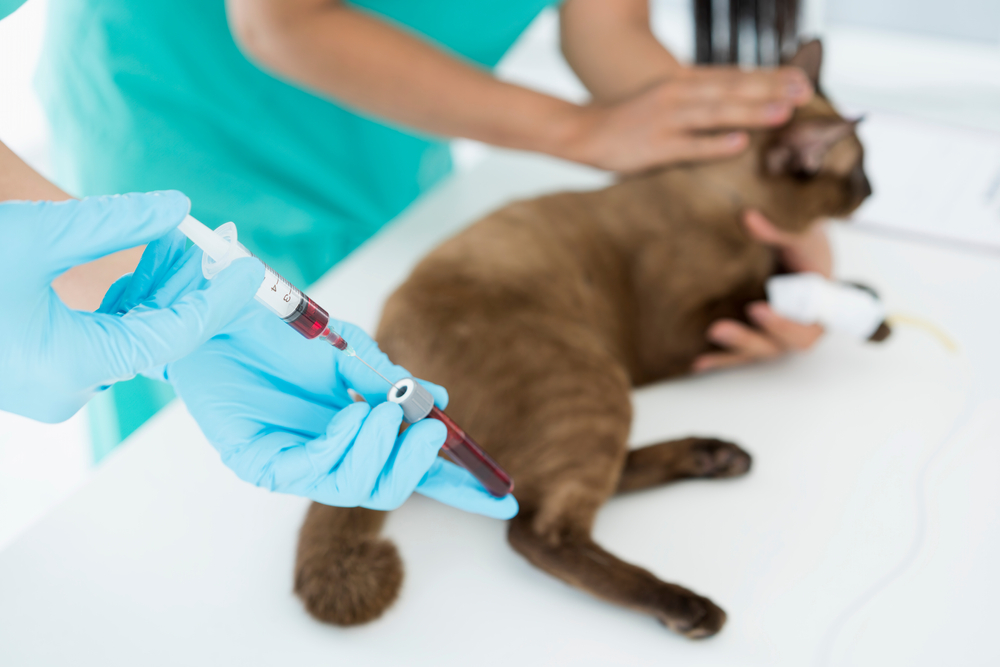Diagnostic testing is essential when your pet is ill, but this testing is equally important when your pet appears to be perfectly healthy. Your pet’s regular wellness screening is one of the best investments you can make in their current health and future wellbeing. Normal wellness screening results provide your veterinarian with valuable information on which they can rely to keep your pet happy and healthy for years to come. Our Juanita Hills Animal Hospital team explains the value of your pet’s normal test results.
A closer look at your pet’s wellness screening
Whether your pet appears healthy, they should have an annual wellness screening that includes a comprehensive physical examination and diagnostic testing. Most annual exams do not reveal any surprises regarding your pet’s health, but sometimes their results detect a brewing illness—before your pet exhibits physical signs. These examinations’ purpose is for your veterinarian to diagnose diseases early, when they are easier to manage and treat.
Routine wellness screening tests for pets
In addition to a physical examination, your pet’s routine wellness screening can provide a wealth of useful information about their health. Routine wellness screenings may include:
- Complete blood count (CBC) — A CBC tests your pet’s red and white blood cells and platelets, assessing their immune status.
- Chemistry profile — A chemistry profile checks your pet’s electrolytes and the function of several organs, including their liver and kidneys.
- Fecal testing — Fecal testing’s major goal is to detect internal parasites such as roundworms, whipworms, and hookworms. These parasites dwell in your pet’s digestive tract and can make your furry pal extremely ill.
- Heartworm testing — Unlike parasites that live in the digestive system, heartworms reside in the heart and lung vessels, and require disease-specific testing. An infected mosquito’s bite transmits heartworm disease—which can be fatal—to your pet.
- Urinalysis — Your pet’s urine provides vital details about their health, particularly their urinary system’s condition, including kidney and bladder health.
- Blood pressure reading — Senior pets are more likely to develop hypertension in conjunction with other health issues such as heart disease.
- Thyroid hormone level — Cats are prone to hyperthyroidism, and—despite having a voracious appetite—can lose weight, becoming too thin. Dogs are prone to hypothyroidism, and can gain weight, develop skin conditions, and demonstrate behavior changes.
The value of your pet’s test results

Preventive care measures help your pet live a longer, healthier, and happier life. Wellness screening tests are incredibly valuable for the following reasons:
- Establish a baseline for your pet’s health — Your pet’s normal wellness screening results establish a their health baseline on which your veterinarian will rely to monitor your four-legged friend’s health changes over time. Any deviation from the baseline may indicate a potential health issue that requires additional testing.
- Detect disease in the condition’s earliest stage — Pets are experts at hiding pain, illness, and disease. Regular wellness screenings can help detect hidden diseases, which may not otherwise have been detected until your pet has become seriously ill. By catching a disease in the condition’s earliest stage, your veterinarian can provide your pet with the most straightforward treatment, offering the best prognosis.
- Save money in the long run — Although you may think that forgoing your pet’s routine wellness screenings will save some money, preventive care actually saves you money in the long run. Averting preventable conditions and detecting illnesses early helps you avoid high veterinary costs. Diseases caught in the early stages are easier and less expensive to manage.
Wellness screening tests are key to helping maintain your pet’s health, and normal test results are always a reason to celebrate. Schedule your pet’s next wellness exam and screening with our Juanita Hills Animal Hospital team.



















Leave A Comment